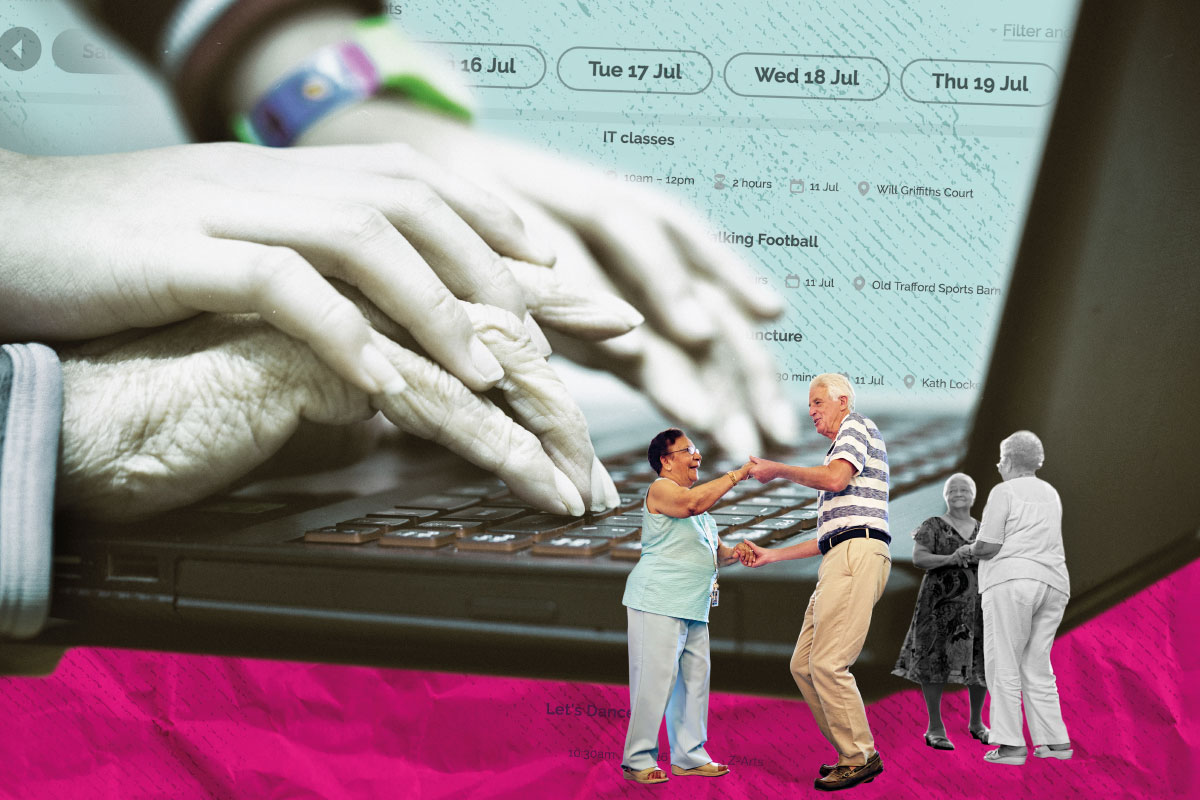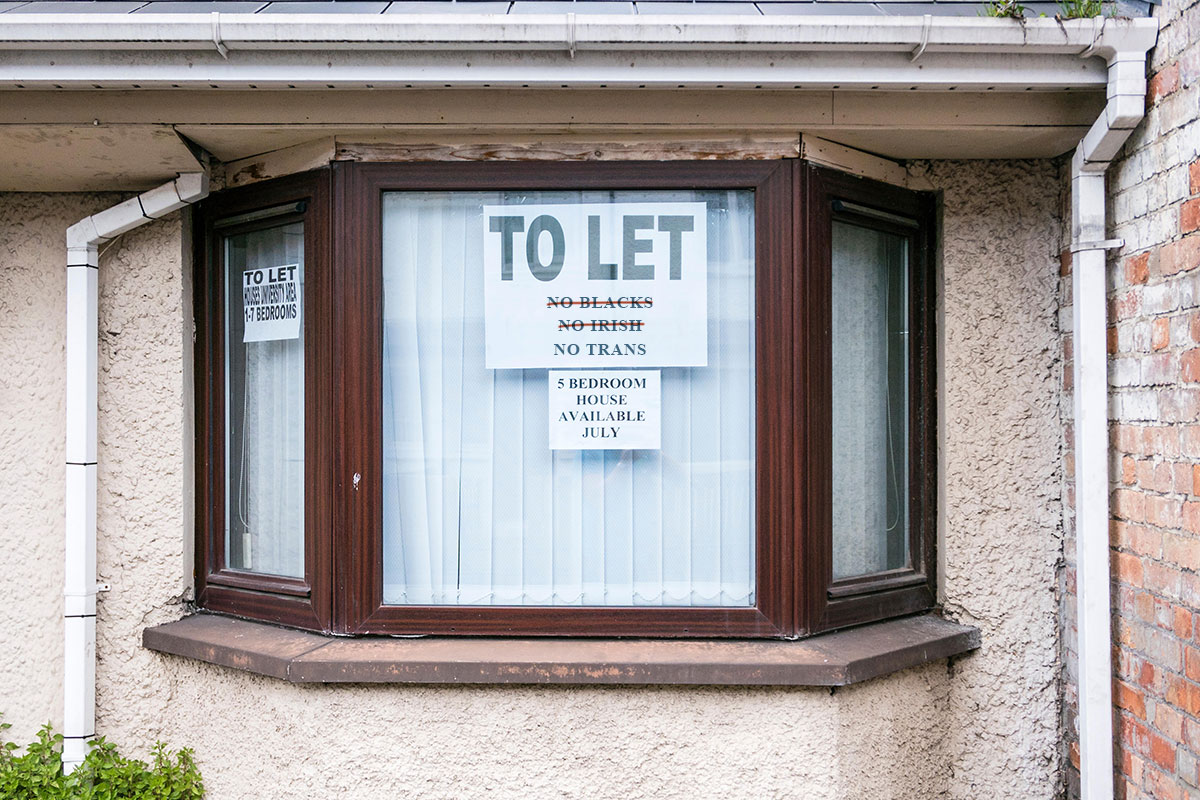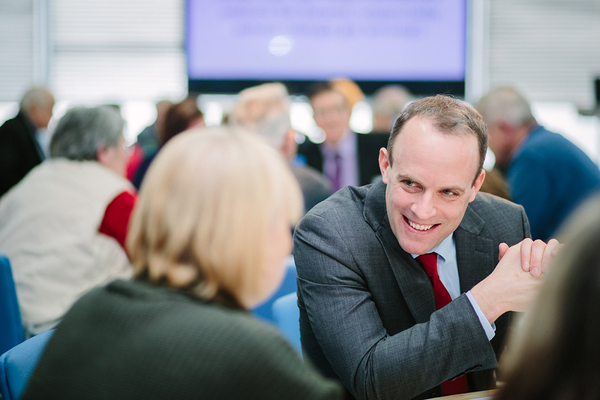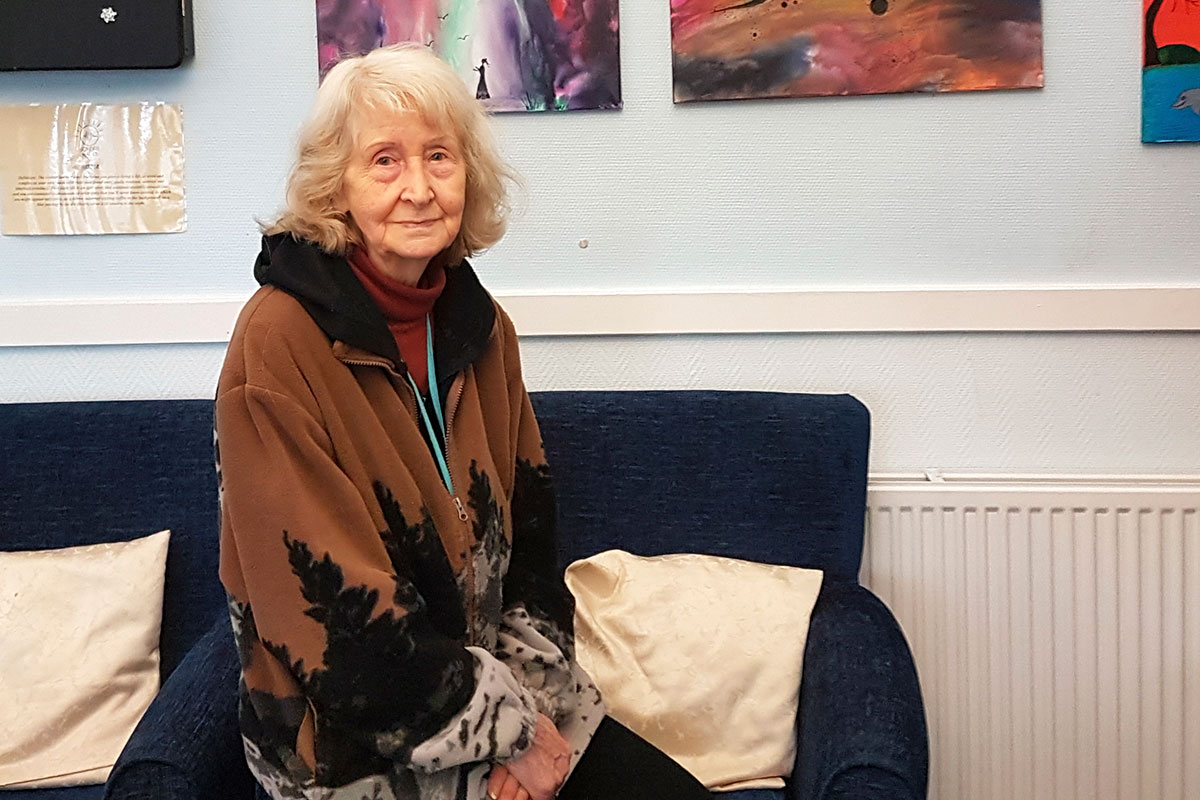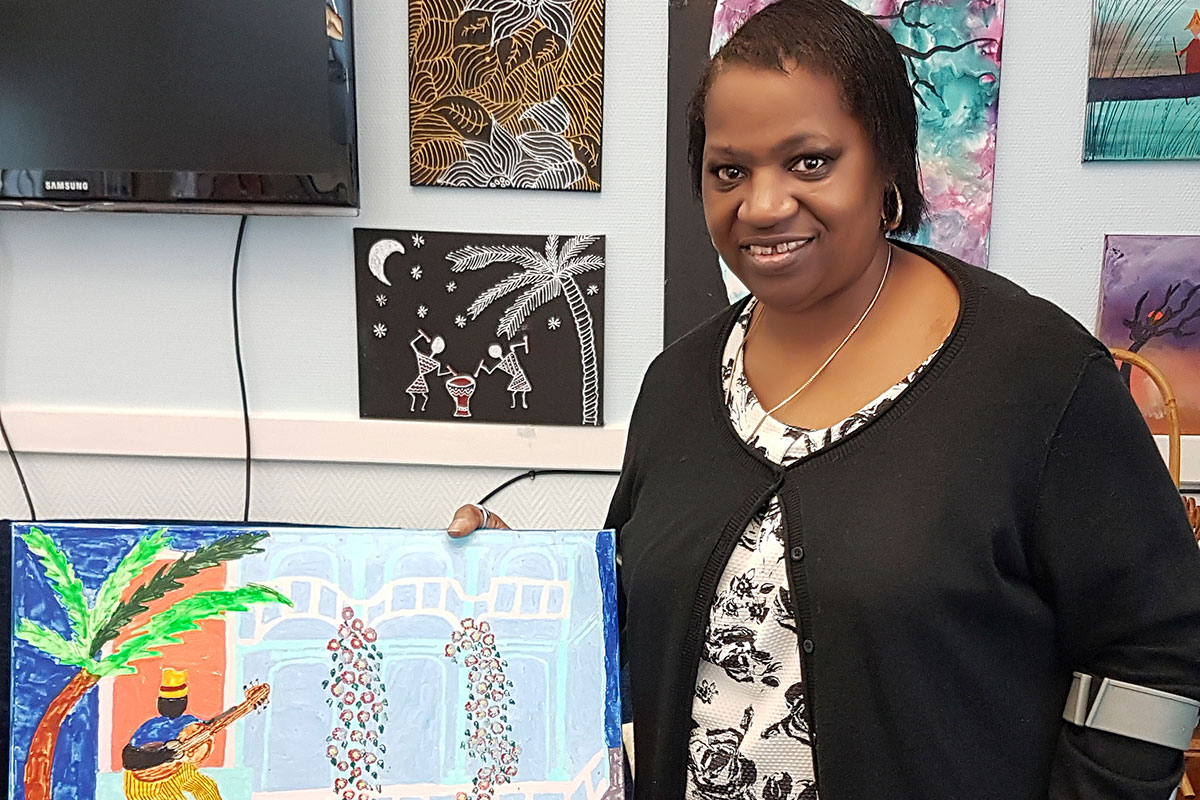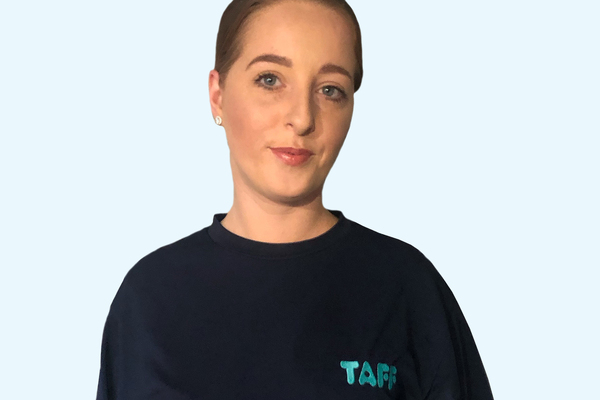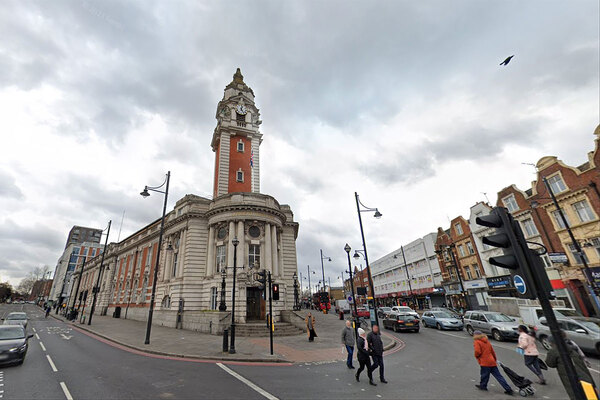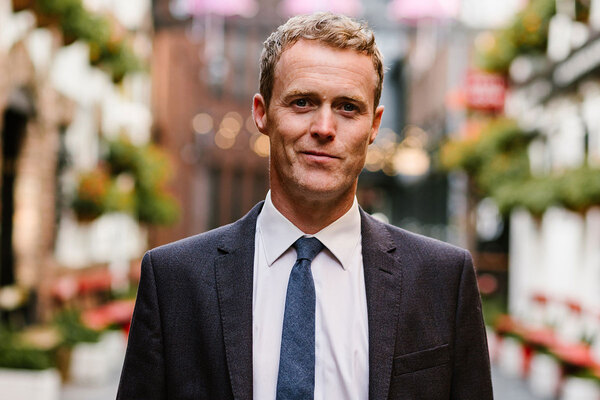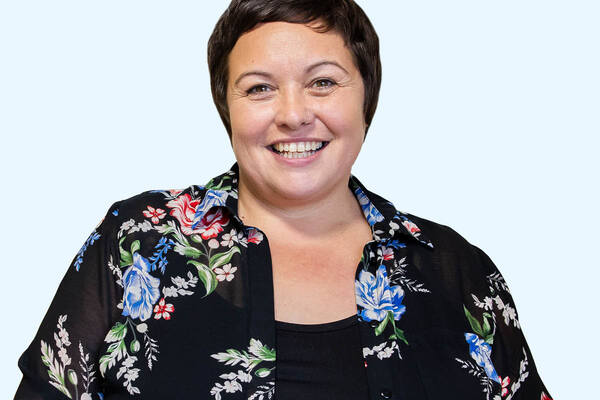You are viewing 1 of your 1 free articles
A timely solution for loneliness?
A simple online calendar is helping older people to connect in Manchester. Tim Clark finds out why housing providers are getting involved. Illustration by Sonny Dhamu
A hot wax art class is in full swing at Will Griffiths Court in Hulme, Manchester.
Eighty-one-year-old Helen Ndow demonstrates how the wax is spread to create cloud patterns. She stops to have a dig at Damien Hirst’s series of spot paintings. (“Doing a whole exhibition with nothing but dots. Dots, dots, dots. It’s alright if you have the name,” she says.) Rant over, she dries off her latest piece and adds it to her other creations.
Ms Ndow has run her free art classes for well over a decade at this local community centre.
The class itself may not, at first glance, seem like a huge undertaking. A couple of irons, some paper, wax, a soldering pen and a hairdryer. But for Pauline Omoboye, one of the regular attendees, it is a lifeline. Ms Omoboye travels across half of Manchester every week to come here, mainly because “there isn’t any art class for me where I live”.
“I lost my mum four years ago and that is how I started feeling lonely,” she explains. “I had looked after her for 20 years and that was all I knew. It’s hard to rebuild, but when I heard about this class one thing led to another and I ended up here.”
Ms Ndow adds: “Loneliness can make people really ill. We are a species which is not singular like a tiger. We are supposed to be in a group, like meerkats. I used to go into town every day to spend money really, just for something to do.”
Inside Housing came across this art class using PlaceCal – a simple idea to do something about loneliness in one specific part of Manchester by setting up a hyperlocal online calendar that lists all local events in one place.
The £55,000 project has had a handful of social landlords involved since its launch last December. Although the project is technically simple, it is being funded by a ‘smart city’ consortium of 21 organisations called Cityverve, including Manchester City Council, the University of Manchester, Cisco and BT.
So far, the calendar idea has been trialled in two areas of Manchester: Hulme and Moss Side.
Both areas have taken strides to shake off their reputation for crime in recent years, but still suffer from many of the problems that come with inner-city deprivation.
PlaceCal is the brainchild of Stefan White, research professor at the Manchester School of Architecture, and Dr Kim Foale from Geeks for Social Change – an organisation that works with communities and activist groups towards a fairer society using technology, communication and education.
Professor White says the aim of PlaceCal is to reconnect communities in a digital age, linking people and events together.
And housing is part of this. The 14 local partners that supply information about events in the two areas include One Manchester, Redbricks Tenants’ and Residents’ Association and the well-being service of housing association People First.
The story began with a related project called Manchester Age Friendly Neighbourhoods, in which residents came together with organisations like the NHS to find solutions to problems.
The project focused on an area of Hulme which is very poorly connected to the surrounding area by public transport, and had low car ownership – but also low self-reported health problems by residents.
Helen Ndow has run free art classes at her local community centre for more than a decade
Discussions revealed that to get to a local health centre many residents had to get two buses in and out of town. Residents and the local council had suggested using a church hall locally to do a weekly surgery, but it lacked a disabled toilet which prevented it being used.
The church wanted to install a toilet but didn’t have the money. The partnership overcame the funding issue, and managed to get a toilet built, making healthcare easier to access in the process.
PlaceCal was a side product of this project.
Research conducted at the time with residents revealed that older people in the area felt there wasn’t anything to do.
It also provided some clues on how to fix the problem.
Professor White explains: “We were sitting in the church and one person, whose wife died three years ago, said they really liked dancing but didn’t know where to go. Another person said, ‘On Thursday night in this church is a dance class, and I will take you to it’ – it changed their life.
“It [PlaceCal] is about having someone who might take you to an event. It’s the mesh, the interlocking of social relationships that stops people being lonely and enables people to have a nice healthier experience living in their neighbourhood.”
An architectural school’s involvement in an online calendar might seem surprising, but Professor White says that such small moves to improve the mental well-being of a community can be more productive and cost-effective than a vast regeneration project.
He adds: “You can rebuild an estate but you will have the same people living in slightly different-sized boxes.
Dr Foale states that the main distinction of PlaceCal is that it is not owned by a single entity, but can be accessed and updated by multiple parties
“There are things you can do as an architect which can help people live better lives, but a key component is people’s social interactions.
“There is a digital space that many people aren’t included in. If you want to find out who to talk to about what is going on in the area there is no one to ask. You have to follow up every lead and go to every venue and work almost like a detective,” Professor White explains.
Creating a directory of events for local communities is nothing new – it has been attempted by numerous tech firms, start-ups, councils and community agencies on countless occasions. However, for all the hype many grand schemes fall by the wayside due to lack of resources.
Janet Fallon, well-being co-ordinator at People First, which has worked with PlaceCal to add its events, says: “In the past we have all these schemes or pots of money which have created directories of events or services, but the problem we have had is always the continued funding; people have moved on and directories have become stale and outdated, and are discarded because they are not used any more.”
Dr Foale states that the main distinction of PlaceCal is that it is not owned by a single entity, but can be accessed and updated by multiple parties.
“When you work with a local community you begin to realise just how much stuff is literally around the corner, or even in the same room and people don’t know about it. But almost every organisation we talk to has a paper diary on their desk or in someone’s head,” she says.
“You can build a site for a client but find people don’t update things; it gets left on its own and then hacked a year later.
Pauline Omoboye travels across half of Manchester every week to attend the classes
“The point is to make a decentralised calendar of event data. We want to use technology to allow people to work together, rather than be just another ‘thing’ to be on.”
Proposals floated to keep the platform going include sourcing funding from organisations with an asset-mapping commission like the NHS, or setting up a foundation to cover the costs.
The estimated cost to extend PlaceCal to cover the whole of Greater Manchester is between £200,000 and £500,000 annually.
Professor White and Dr Foale argue the NHS and housing associations can save money by improving the mental and physical health of residents, and so should be providing this funding.
The importance of connecting people to events in the real world is made clear if you look at stats on loneliness, particularly those affecting older people.
According to Age UK, more than two million people in England over the age of 75 live alone, and more than a million older people say they go more than a month without speaking to a friend, neighbour or family member.
According to Professor White, the effect of isolation can be worse for health than lack of physical exercise or even smoking.
"The importance of connecting people to events in the real world is made clear if you look at stats on loneliness"
He adds: “We have tons of money flowing into sports science or grass-roots sport, or to stop smoking, but nothing which encourages people to simply talk to someone or get out of the house. Yet the impacts [of isolation] are twice as important as physical activity.”
This is why People First is an active partner on the project and runs a computer class for older people. Ms Fallon says: “Isolation is a key problem for people we support. At least 90% of people, when you ask about what could be changed, will say having someone to talk to, communicate with or even simply see once a week.”
One Manchester runs the centre which hosts the art classes. The housing association, which has 12,000 homes in central and south-east Manchester, is looking to engage more actively with the PlaceCal team. Anton Schultz, social investment manager at the landlord, says: “Mental health is a big issue with sole occupant households and an ageing population.
“It [PlaceCal] may have limited impact at present, but it challenges the belief that because people think there is nothing to do, that itself becomes a limiting factor.”
As well as putting PlaceCal together, both Dr Foale and Professor White have also had to explain to investors or stakeholders why their model for PlaceCal doesn’t fit the normal business model that a tech firm would expect from a social network.
According to Dr Foale the university and PlaceCal team met around 5,000 people in the first months following PlaceCal’s launch. The idea of meeting people in person is an anathema to how a social network would normally operate.
Dr Foale says: “People keep asking us about our [online] visitors, but for us an ideal website is where someone’s GP scrolls down the list of events, they find one which looks good, arrange transport for their patient and then never touches the site again.
“In terms of tech development that’s suicide, but in terms of making a community healthier that may help that one person who had 40 ambulance visits last year.”
